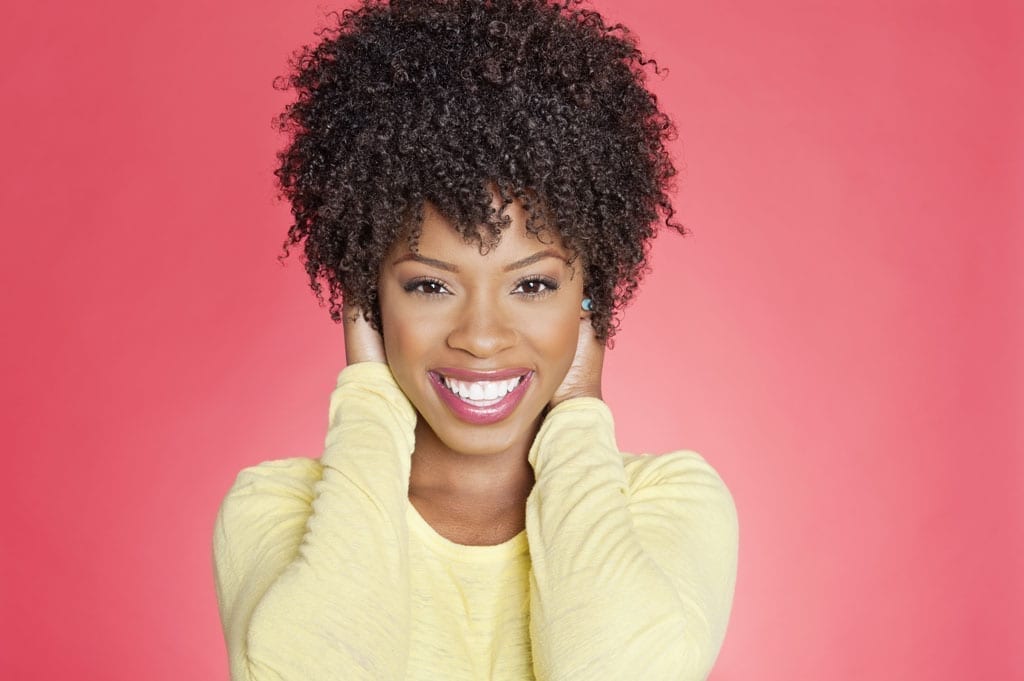I avoided writing this blog piece for a while because the lawyer in me felt the need to do research, create an outline, and collect sources to footnote in support of each reason why I believe natural hair is not a fad. I still may write a research paper about it one day – because history does document our abiding connection to our roots and what grows naturally from them and the centuries do illustrate that women of African, Hispanic, Latino, Italian, Jewish or other descent have long rocked TWAs (Teeny Weeny Afros) and BFAs (Big Fluffy Afros). It’s a complex topic. For now, I’ll just riff on it (and try not to feel like a non-citing slacker . . .) (as I do a quick Google search for maybe just one or two secondary sources to throw in . . . quickly) (REALLY should not be this hard to let go and just write) (SUCH A ROOKIE BLOGGER!).
Today, women are embracing natural hair in masses so critical that mainstream product manufacturers are taking note and making changes. For some of us, it starts with a desire to be healthier, eat cleaner, keep things simple, or surround ourselves with natural agents rather than chemical ones. For others, it may emerge from our weariness with convention and our desire to be uniquely ourselves. We may be sick and tired of spending time on our hair when we have mountains to move at home and other important universally-impacting work to do in the world! It could be a direct outcome of our frustration with the havoc that years of chemical relaxers and other hair products and styling methods have wreaked on our precious strands. Or it could be the awareness that suddenly hits us when our own little girls begin to grow up and pay attention to their hair – and our utter fear that they will suffer from the same humiliation, shame or discouragement we may have experienced when we were growing up. Whatever the catalyst, women with textured hair are taking matters into their own hands with a boldness and confidence that is influencing social and cultural norms today. (Just think: was there ever a time in American history when it seemed that every other television commercial or magazine advertisement featured a woman of color wearing her hair in its textured state?)
It aligns with our societal evolution. More of us care whether packaging and materials are sustainable. More of us want organic produce. Gym memberships are almost as important as wireless data plans and many of us can recite our BMIs (or pretend not to know them) at the drop of a dime. There is a growing sense that the unadulterated state of a thing is generally better for us than the processed version and, more important, a willingness to spend extra for what we think is better.
Profoundly, more of us are recognizing and embracing the unique beauty that exists in what grows naturally from our roots. It is not a mistake that we have the hair we have. It is an intentional blessing that was gifted to us through our parents on behalf of our Creator. This recognition and acceptance is a powerful thing. It’s powerful enough to alter the course of the next generation of girls growing up with textured hair in a world that still suffers from an identity crisis. It’s powerful enough to instill self-love in the midst of so much self-hatred. It is powerful enough to change the game as we know it – to flip stereotypes, create new rules, and deliver a shiny new image of what beauty really looks like.
Our recognition and acceptance of the unique beauty that exists in what grows naturally from our roots is so much more than “a style or activity that suddenly becomes popular but which usually does not stay popular for very long” (Cambridge Dictionary definition of “fad”) (and there’s my citation). It is part of the lifeblood of 21st-century self-acceptance. It is the opposite of a fad.


0 Comments